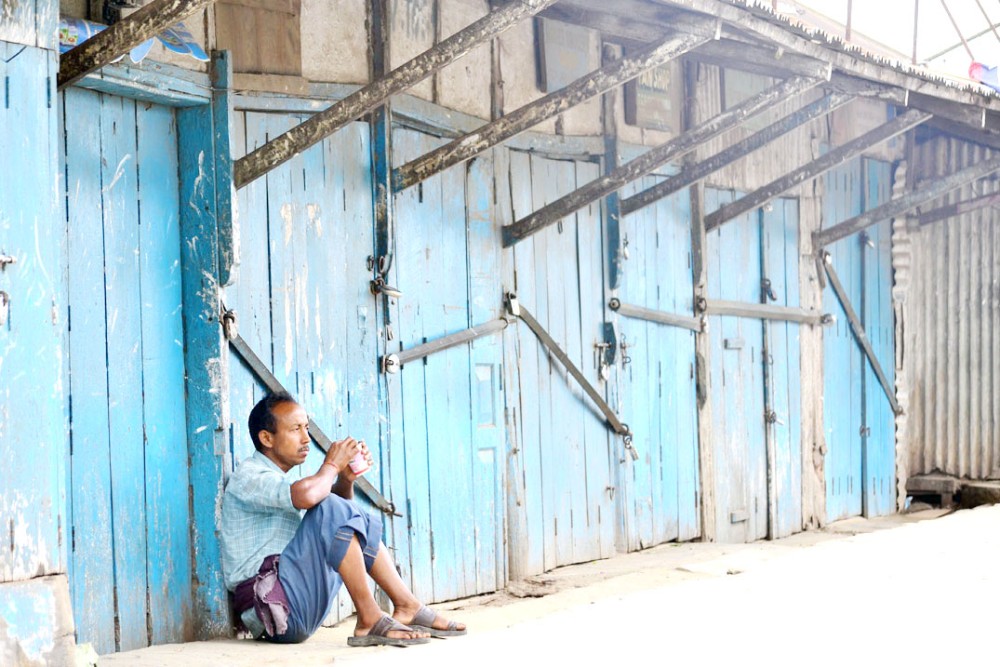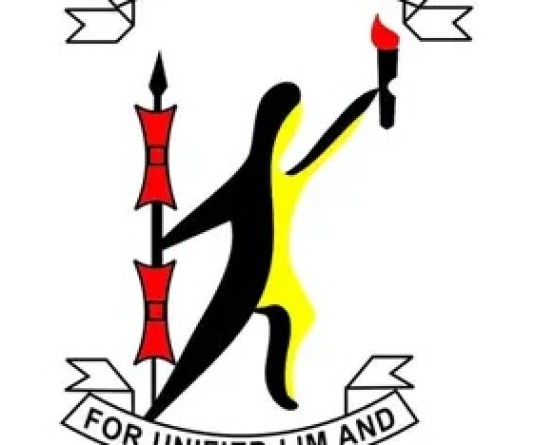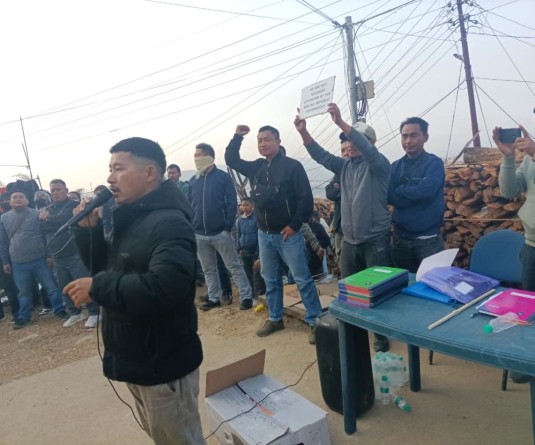A man sits alone in front of closed shops in Kohima on June 18. Most shops downed their shutters in compliance with the commercial bandh called by the Kohima Town Traders’ Union in support of the first phase agitation of ACAUT. (Morung Photo)

Dimapur, June 18 (MExN): The Action Committee Against Unabated Taxation (ACAUT) under the aegis of the Naga Council Dimapur announced its ‘one tax to all Naga groups’ policy and people rejoiced. Only one tax to be paid henceforth, many thought.
“At first I thought they were asking people to pay only one tax,” says Huzo Meru, former Chairperson, of the Peace Committee of the Nagaland Baptist Church Council. But it was not so. Meru is of the opinion that the civil society initiative against unabated taxation should push for only ONE TAX overall in their campaign. “Paying a single tax but to each of the Naga groups will not solve the issue. Taxation has become an industry, and there need to be rallies in every district headquarters to show how unhappy people are with heavy taxation,” he iterates.
In 2011, another platform tried to implement this idea. “We talked about one government—at the back of our mind was a unified tax system, and of course an eventual solution to the Naga issue,” says Dr. Wati Aier, Convenor of the Forum for Naga Reconciliation (FNR). This campaign around taxation, according to Dr. Wati, will push the Naga groups to think, so “let us wait and see what happens”.
To think of what? Of “having pushed the Naga people to bear the unbearable and accept the intolerable,” reflects peace and social activist Niketu Iralu. “Naga leaders should never have let the situation come to a stage where people have to rise up against them. The Naga Council Dimapur has thought carefully and arrived at this first step—to ask for one tax to be paid to each group. It is a welcome step,” he articulates.
The step, no doubt, has been welcomed, as exemplified by Tuesday’s bandh. Some shops that opened in the evening spoke more about their support to the ACAUT’s campaign than their losses for the day. “It would be great if we had to pay a unified tax, even if that means paying a bit more. At least it will cut out the haggling required with each of the five groups we have to pay to,” declares one shop owner.
“Coupled with an identity card for tax collectors and a clean system, business could progress a lot more,” he expresses. But for now, the ACAUT has not approached them with concrete steps.
Without these steps, small sellers like a banana seller on the footpath, having to pay Rs. 50 each to two “parties” from his daily earning of Rs. 300 has nowhere but down the dark alley to go.
Though the main issue lies with the dealership or syndicate system for many business persons in Dimapur, that this is an off shoot of a system which allows for multiple taxation by multiple groups cannot be denied.
“The organizers of this campaign could have approached this from the spirit of reconciliation—there should be only one tax, from which the groups can budget and share,” ideates rights activist and FNR member Neingulo Krome.
Former president of the Naga Mothers Association (NMA) Neidonuo Angami agrees. “People are being made to pay too much in the name of national service, in one way or the other. I support the current initiative fully but if the groups come together, it will be advantageous for the people as well as for them,” she reiterates, inverting the call for a unified tax.






